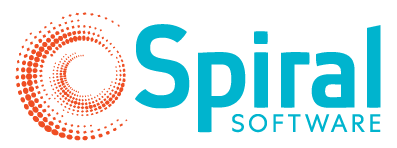Mega-ROX Trial - Leveraging Spiral Software for Robust Data Management and Global Collaboration
The Mega-ROX trial is a groundbreaking multicentre, multinational, randomised clinical trial aiming to compare conservative oxygen therapy with usual oxygen therapy in mechanically ventilated patients admitted emergently to or intubated in the ICU. The study is designed to determine whether a conservative approach to oxygen therapy could potentially reduce mortality compared to the traditional liberal approach.
Diane Mackle, an experienced ICU nurse and now Project Manager of the trial, plays a pivotal role here in New Zealand managing the Mega-ROX trial and its coordination with the Spiral team and Spinnaker software.
Despite having an incredibly busy work schedule on her hands, we had the privilege of speaking to her about her involvement with Mega-Rox, its objectives, successes and challenges, and her perspective on the future evolution of clinical trials.
-
With a background in ICU nursing and a true passion for research, Diane stepped into the world of medical research about 15 years ago through what she describes as a ‘serendipitous moment’. Her knack for digging into data and her fascination with health informatics led her to her current role at the Medical Research Institute of New Zealand (MRINZ). It's this blend of her clinical know-how and research smarts that make her a natural in managing complex clinical trials.
‘I love the work that I do. I can bring my clinical experience to the job and at the same time get to work with numbers and data, which I like’
As a global project manager for Mega-ROX, Diane oversees the trial's implementation across multiple countries, including New Zealand, Australia, Brazil, Canada, Ireland, Italy, Japan, Kuwait, Malaysia, Nepal, Oman, Pakistan and Saudi Arabia. With the backing of four to five other team members at MRINZ including Principal Chief Investigator, Paul Young, Diane has support in place to ensure her overall responsibility of the trial runs smoothly.
Her day-to-day is busy and at times, complex, with her responsibilities ranging from coordinating teams and setting up sites to establishing communication protocols, and ensuring adherence to the trial's protocol. Her close collaboration with other project managers, including counterparts in multiple countries, strengthens the trial's international reach, ensuring that it reaches its full potential.
The Mega-ROX Trial in action
The study of oxygen therapy in patients is not new. Mega-ROX found its origins in a trial conducted in 2019 known as ICU-ROX. Using Spiral’s software, investigators from New Zealand and Australia wanted to know if a conservative use of oxygen therapy compared to usual oxygen therapy affects the number of ventilator-free days in mechanically ventilated ICU patients.
In contrast to Mega-ROX, ICU-ROX was a much smaller trial with just 1000 patients. Despite its size, the study revealed that using conservative oxygen therapy, as opposed to the standard approach, did not make a statistically significant difference in the number of days patients spent alive and on a ventilator. This finding sparked a deeper dive into oxygen therapy, specifically looking at whether keeping oxygen levels closer to what you'd naturally find in a room could lower mortality rates.
‘There is a growing body of evidence about oxygen use that this is a really good trial to do, it’s important.’
Comparatively, Mega-ROX is a large trial. It’s characterised not only by its impressive scale but also by its international collaboration. The trial comprises a series of registry-embedded clinical trials nested within an overarching 40,000-patient trial sample. The trial also looks into how this might play out for patients with acute brain pathologies and sepsis.
‘We don't know the results yet, we’re only a third of the way through but we’re looking to see if there is a difference for different patient groups - would some benefit from less or more oxygen.’
With the trial not even half complete yet, Diane can’t yet comment on how she thinks the results will turn out. However, one thing she is certain of is that their focus will be on getting that answer out to ICUs worldwide, potentially making substantial changes in patient care practices globally.
Transforming ingrained practices within the medical field can be quite challenging, yet Diane views it as a vital step toward advancing and enhancing patient care, one that takes time and patience. To make meaningful changes, individuals engaged in clinical trials, such as Diane, must demonstrate that their research is not only robust but also trustworthy. It's a gradual process, but it's essential for the progress of patient care.
Enhancing Study through Long-Term Partnerships
One of Spiral’s longest-standing working relationships has been with MRINZ. It goes without saying Diane has gotten to know the team and Spinnaker software reasonably well over the last ten years.
Diane first became involved with Spiral in 2012 when she collaborated on the HEAT trial, a study comparing intravenous paracetamol to placebo in the treatment of fever in critically ill adults with known or suspected infection.
Diane admits that both her team and Spiral were relatively new to conducting randomised trials back then but acknowledges the huge amount of growth and development that has taken place since.
‘Things were basic the first time round. But Spiral’s systems for developing databases are so much stronger now. We’ve all come a long way’
Over the years, Spiral Software's capabilities have evolved, and the Spinnaker system has become even more powerful and versatile. The system's flexibility allows Diane to customise the database according to trial specifications, ensuring that data collection is aligned with the trial's goals and with a trial of this magnitude the system’s ease of use and responsiveness are particularly advantageous.
‘We love Spiral and their software - we keep using it. We know there are other alternatives out there but Spiral’s database is incredibly easy to use, it’s so intuitive.’
Most importantly it’s keeping people on the front line happy. It's essential that nurses and doctors who are working within high-pressure environments are able to enter data with ease. With over 40,000 enrollments and numerous sites on board, the database must smoothly handle a massive volume of incoming data.
‘The sites love it. The responsiveness is amazing too, If something happens or something is not right, we can log it or email directly, and Spiral will fix it straight away’
Setting a language precedent
One of the most remarkable aspects of the Mega-ROX trial is its global reach. The trial spans 14 countries, encompassing a diverse range of healthcare systems and patient populations. Despite there being a large number of English-speaking professionals within these ICUs, there has been the challenge of language barriers.
The team in Brazil are planning a total of 40 ICUs to be involved in the trial. As a result, the teams working within the trial using Spinnaker asked for the software to be translated into Portuguese.
‘When Paul [Young, Chief Investigator] said we’ll have to translate the database I thought ‘I hope Spiral can cope with that’ but I can’t believe how seamless it has been. The translation feature is great.’
Working together, Spiral came up with a plan for a dual system with the addition of dual help text and the Brazil team provided the translation. Now when logged into Spinnaker, users get the choice to switch between English and Portuguese making the ability to navigate the system easy for anyone on the front line.
‘The Brazilian team are very helpful. We asked them to translate everything for us, Spiral then built it into the software and the Brazilian team tested it. ‘
A true collaboration on a global scale, this feature has proved essential for enabling efficient data collection and sharing among researchers who primarily work in English but may benefit from native-language interfaces. The effective and accurate communication between research teams has enabled efficient data collection, serving to further bolster the reliability of the anticipated results.
‘I have loved collaborating. It can be challenging at times, in the past I had only dealt with Australia in my studies. But this truly is a global study, with global significance. When the results come out they will be generalisable and not just relevant to rich countries.‘
Today’s lessons, tomorrow’s progress
With an end date for Mega-ROX still to be confirmed, Diane will continue to have her hands full with this large-scale global trial for a few years yet. However, as someone who loves the work that she does, this isn’t an issue.
‘I love how diverse my work is for me. It’s two-fold for me, I like the bigger picture that research provides, and it’s really important that we can continue to improve patient outcomes and care. But essentially I really like the work’
The length of the trial means that there is always the capacity to continue to update and improve the study’s process. Diane knows that the impact of the trials she works on goes beyond the immediate. The ripple effect of what her team and Spiral are learning today extends far and wide, guaranteeing that trials in the future, whether it's five, ten, or even 20 years from now, will reap the benefits of this ongoing progress.
‘Any changes we make, anything we ask for now means that future trials will benefit from these changes. The collaborative nature of changing something at your end means that it will work for someone else in the world at some other time’
Effectively, Diane and the Mega-ROX team aren’t only transforming clinical practices in ICU settings in relation to oxygen therapy, but they’re also laying down the foundations for future trials to evolve from, something that is particularly evident in the addition of the Portuguese language translation.
‘This trial is about so much more than just numbers – it's about redefining what's possible in healthcare and making a lasting impact on patients' lives.’





